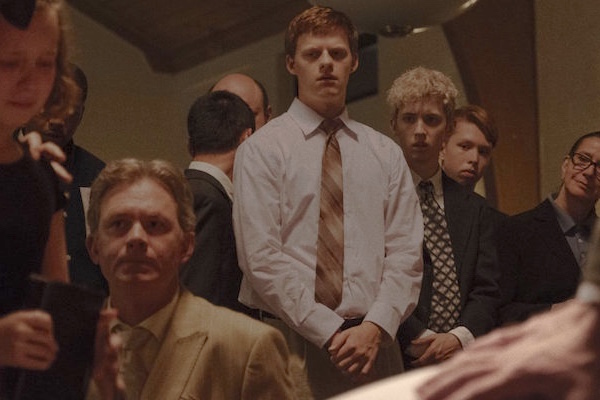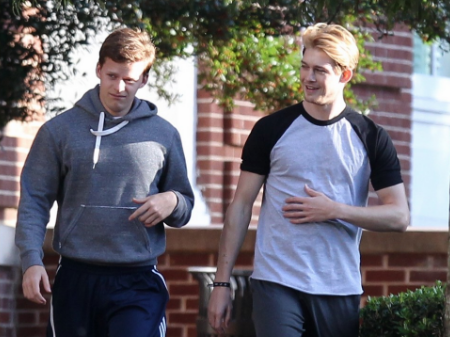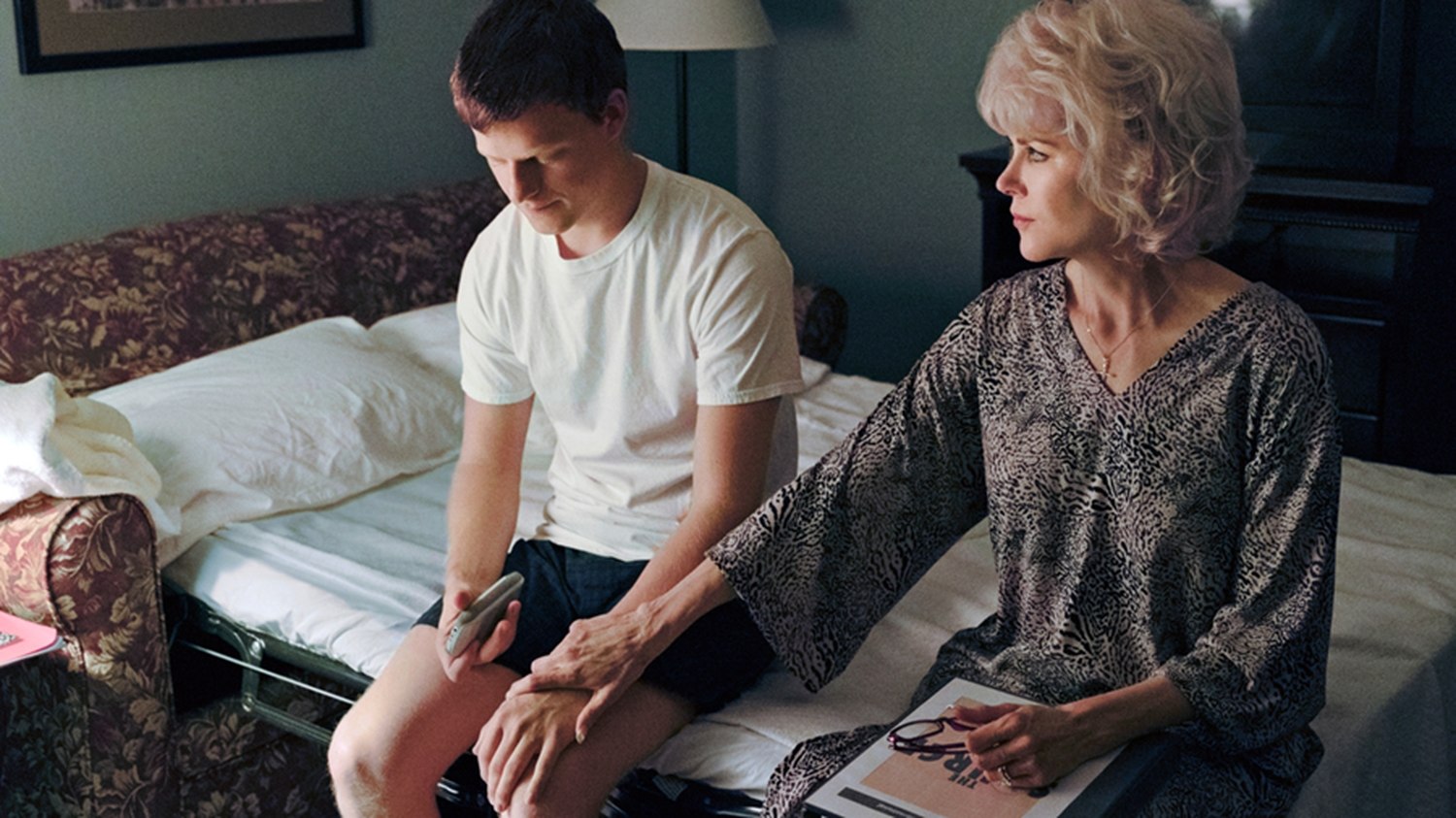Please welcome guest columnist Eurocheese, who you probably know from the comments section. We realized we hadn't reviewed Boy Erased in full and he wanted to share his own story and how the film affected him. Here's Eurocheese... - Editor

Fifteen years ago, I came out to my conservative religious parents as a gay man. One of their first suggestions was that I voluntarily send myself to a gay conversion camp. Fortunately, I had accepted myself by that time and refused to go. What would have happened if I had been outed sooner, or if I still thought I could somehow change? I have seen several films addressing these so-called conversion camps, but never one that felt more in line with my personal story than Boy Erased...

[MINOR SPOILER] The reality-based story follows the main character Jared to college, where his friendship with another student turns ugly. Not only is he attacked and raped by the student, but to keep Jared from telling on him, the rapist calls Jared’s parents and tells them Jared is gay. [/SPOILER]
This traps Jared in a situation familiar to many religious closeted kids – if lying is wrong and being gay is wrong, what do I do? Jared decides to be honest. His parents rush to “fix the problem” and, following their church’s advice, they send him to a gay conversion camp.
One of the reasons this film works so well for me is Lucas Hedges’ Golden Globe-nominated performance. As he begins college, he is a nice, quiet young man who seems more intent on experiencing the world by cautiously observing, rather than acting on his feelings. Is this because he has been closeted for so long? Is he just naturally a timid person? I’m not sure, but Hedges makes it clear that Jared is always actively listening, trying to figure out a place where he can be himself, with his parents and with his faith. Every suggestion someone makes is a potential life raft. He is constantly reevaluating the world around him because he hasn’t found his own voice yet. When he does speak, we listen intently because we want to make sure he is finding the right path.

I can’t go further without mentioning the absolutely devastating performance given by Nicole Kidman as Jared’s mother. In real life, Jared and his mother are very close to this day. When Jared’s father and the church decide to send Jared to this camp, though, she seems to be silently agreeing that this is the best option. Much like Jared, she is watching this situation carefully, waiting to find her own voice in a situation where she feels a bit lost. In every scene, Kidman brings a palpable sense of love, and as she jokingly questions Jared’s reaction to this camp, we begin to understand she might be Jared’s way out. When she finally realizes her mistake in letting Jared go to this camp, there’s a fire in her we have not quite seen or expected before then. She may have hurt her son by not speaking up sooner, but when she decides the camp has crossed a line, there is no going back. Her tearful apology to her son when she realizes what she’s done is heartbreaking.
There are several talented actors playing the other kids in the camp, and I appreciate the film’s different takes on how everyone handles their parents bringing them to a place that essentially tortures them for being themselves. Some seem to accept that they deserve this treatment; others play along and fake it, knowing it’s the best way to survive the situation; still others, like Jared, aren’t sure how to proceed. Some kids can't find a way out. It’s a grim reality that reminds us that as bad as Jared’s situation might be, there are those that have it far worse. The importance of banning an institution that would do this to children can never be understated.

The complicated relationship with conservative religion is perhaps best illustrated by Russell Crowe, playing Jared’s father. While we know that he believes he loves Jared – and it’s clear from Jared’s actions as well as his statements that he loves his father – he will never fully accept him. This is a difficult role to represent well, because it’s hard to understand why a belief would be more important to a parent than their own child. For those who struggle to understand, though, I will say that as a gay man in a similar situation, we often settle for fragmented relationships with our parents when that's the only kind of relationships that we are offered. Late in the film, Jared finally finds his voice and in a very moving scene, lays out what he will accept from his father. This also felt very true to life: Ultimately, if a child has been mistreated, they have to set the boundaries for their relationship with their parents.
I cried at several points in this film, and I understand why select audiences have been supporting it. Whatever your relationship is with your family, there are moments of betrayal, moments of frustration and (hopefully) moments of genuine love. I also can’t imagine someone watching this movie and not being moved by a segment where another student that he meets, an out gay man, sleeps next to him and seems to accept him. Watching Jared ache so badly for love and finally find a little bit of peace and acceptance is like watching someone find an oasis in the desert.

more on Lucas Hedges | more on Nicole Kidman | more LGBTQ topics